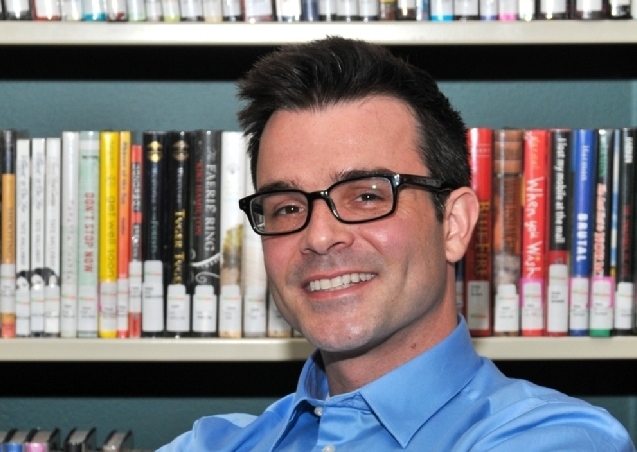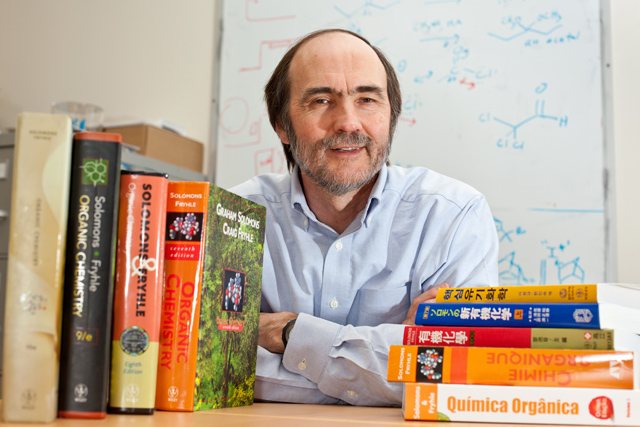Page 168 • (3,626 results in 0.039 seconds)
-

, and, of course, don’t forget to stock up on your favorite snacks to keep you fueled and ready for anything that comes your way. Access to money (checks, debit card, credit card, etc.) Umbrella Key ring Flashlight Batteries Sports/recreation equipment (PLU’s Outdoor Recreation Club also has a great rental program for these items) Snacks for your room Stuff for learning. You’re heading to PLU to learn and achieve your academic goals, and we’ve got you covered with the must-have supplies to set you
-

recalls the difficulty he had learning to read as a child due to his experience with dyslexia. Because of the setback, he knew that he was going to have to find another way to learn than traditional book reading. Bannon found he was able to learn best when he had hands-on experience, something that later influenced his interest in libraries and their use of technology. Now the newly appointed CEO of the Chicago Public Library System, Bannon has definitely found his passion. He replaced the longtime
-

awesome outlet because I have not had that at home,” Beiermann said. Beiermann insisted young people have nothing to fear when engaging in politics. He said they can promote the most change by confidently participating. The key to confidence, Beiermann said, is education. “When I started, I didn’t know anything. But I went there, I showed up, and I said, ‘I want to learn,’” he said. “Even if you know nothing about politics…show up. Half the battle is showing up, the other half is learning.” Read
-
Hour Reunions: These will all take place from 9 a.m. to 10:15 a.m. and are free. The following classes and affinities will gather individually for coffee and reminiscing: 1947 – 1949, 1958 and Pear Bowl Alumni in the Morken Center for Learning & Technology 1963, 1968, 1973, 1983, 1988, 1993 and African American Alumni in the University Center. Homecoming Celebration Brunch: This will take place from 10:30 a.m. to noon at Olson Auditorium. The cost is $20. All alumni and friends are invited to this
-
, the Nativity House, Tacoma Community Center and the Tacoma Rescue Mission. The students came to make a difference, but the impact of the experience ended up changing how they see the world. “For me it was about learning how exactly we can be helpful to other people,” McCracken said. “Being present is the most important thing we can do.” “It opened my eyes to how community and how relationships are truly valuable,” said Nicole Gallego ’11, sociology major from Federal Way, Wash. “The experience
-

really engage with the professors and the people that you are with.” Dean is hoping to start an indigenous peoples club at PLU and is looking forward to a potential indigenous studies minor. “Being Native American is a big part of my life,” Dean said. “I might not look it to other people, but I feel it in here.”Learn moreIf you are interested in learning more about the Red Feather Scholarship, contact Director of Military Outreach Michael Farnum at farnumms@plu.edu. Read Previous Pacific Lutheran
-
challenge I would not give up,” Marzano said. “This is what I love to do and this is what I’m here at school to study doing. I try to view them as kind of in the same boat. I’m here learning what I’m doing at 7 p.m. that night. The only thing that is a bummer is the commute. That’s the only downside. Everything else, all the time I put in rehearsing, is just the name of the game. I learn no matter what I’m doing.” Marzano, who has performed at the Vashon Opera, Lakewood Playhouse and at PLU, has already
-

May 11, 2012 For more than a decade, Professor Craig Fryhle, chair of PLU’s Chemistry Department, has coauthored an organic chemistry textbook that has become standard, celebrated and familiar fare for sophomore students studying organic chemistry in many universities. Fryhle is just finishing up the 11th edition of the book with his coauthor, T.W. Graham Solomons. (Photo by John Froschauer) For organic chemistry students, Prof. Craig Fryhle’s name pops up almost every time they open a book. By
-
some ways it’s a very primal fascination or instinct.” As Ryan regularly points out to his students, the world didn’t start on the day they were born. The study of the past is an important step in understanding how human beings got here and where civilization may be headed. “Egyptians had a lot to contribute to that,” he said. “It’s a very fertile ground for learning a tremendous amount about the human past. Even before they were building pyramids, there’s this whole process where people went from
-

February 20, 2014 On a visit to a U.S.-funded mine-risk education seminar in Kayah State, Jerry White stands with fellow landmine survivors. U.S.-supported mine-risk education in Burma can serve as a platform to build trust between these armed groups, the military and the Burmese government. Photo courtesy of the U.S. State Department. Turning Tragedy into a Sense of Mission: Nobel Peace Prize Winner Talks at PLU on Facing and Overcoming Obstacles By Barbara Clements PLU Marketing
Do you have any feedback for us? If so, feel free to use our Feedback Form.


